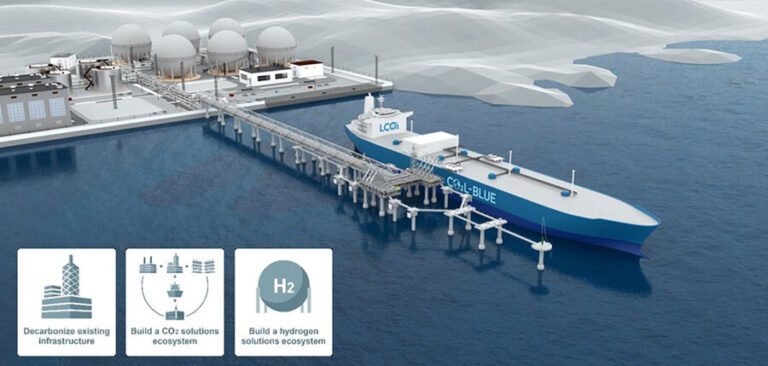The establishment of a Marine Decarbonation Business Development Group has been announced by Mitsubishi Shipbuilding, in response to an energy transition strategy promoted by Mitsubishi Heavy Industries (MHI).
The organization – through a combination of technology development, market research and the implementation of business strategies – will use company technologies to accelerate technological development for maritime decarbonization.
Since its founding in 1884, Mitsubishi Shipbuilding has built more than 5,000 vessels including coal carriers, oil tankers, and liquified gas carriers. With maritime decarbonization high on the agenda, Mitsubishi Shipbuilding expects the demand for clean energy carriers for ammonia and other materials to grow, in addition to LCO2 carriers to support reverse logistics for fossil fuels.
“We have received numerous inquiries from customers regarding growth sectors such as LCO2 carriers and ammonia fuel vessels and we need a dedicated organization to coordinate the technological innovation and handle this business,” said Toru Kitamura, president and CEO, Mitsubishi Shipbuilding. “The establishment of the Marine Decarbonation Business Development Group will accelerate the pioneering of new businesses that utilize and apply the oil and gas technologies possessed by Mitsubishi Shipbuilding, and in combination with conventional shipbuilding technologies, allow us to achieve ‘organizational ambidexterity’.”
Under the strategy promoted by MHI, Mitsubishi Shipbuilding will initiate a growth strategy focused on the ship and marine sector called Marine Future Stream. The strategy involves company goals for the decarbonization of the maritime economy through the use of clean energy and the carbon cycle. Additionally, it will utilize digitalization, electrification, and the generation of new ideas for use within the sector.



